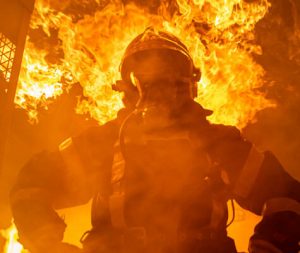IN THE MIDDLE OF THE WINTER: THE COLD THAT SHELTERS MOST.
This morning it was very hard for me to get on my bare feet and get out of my cozy bed; the cold has comfortably been installed in our homes.
 Many are those who associate winter with a romantic, melancholic or even nostalgic season. For some it is their favorite time of the year because they can go skiing and spend time at home with their families. Others will have the memories of a chimney in a corner of the living room, full of burning firewood, giving off a nice heat while huddling together on the couch under a pleasant blanket and enjoying a movie. This all sound very good, but I am estoy harta de este frío infernal¹ .
Many are those who associate winter with a romantic, melancholic or even nostalgic season. For some it is their favorite time of the year because they can go skiing and spend time at home with their families. Others will have the memories of a chimney in a corner of the living room, full of burning firewood, giving off a nice heat while huddling together on the couch under a pleasant blanket and enjoying a movie. This all sound very good, but I am estoy harta de este frío infernal¹ .
I am always shrunk, my bones are numb and I walk on the streets of Salamanca to go to the Colegio de España, covered with thousand layers so that I would not notice the two degrees under cero which we have this morning.
We wrap ourselves so much that we look like walking onions² . Onions? You might think why we talk about onions. Yes, dear reader, taking off the cap, scarf, gloves, coat, sweater, thermal shirt.., we take off layer after layer all clothing we do not need once we go into some warm place where the heating sweetly warms the room. How pleasant!
It is not surprising that in Spanish, as in other languages, we have some expressions using the word frío. Nor will it surprise you that frío is mainly used in a negative sense, because when you think of cold, what does it suggest to you?
Would you like to learn some of these expressions?
Let’s see them.
“A sangre fría”.
This phrase means without any feelings. The novel of Truman Capote comes to my mind, In Cold Blood, a novel which is a very hard testimony of the North-American journalist and author where he explains how an entire family from a rural town in the United States is murdered without any sense.
In the same way, if we want to express that something is done without any feelings, we can say that it is done a sangre fría. But we can also use this phrase with verbs like: tener, demostrar o mostrar.
Let’s see an example: El piloto demostró sangre fría y aterrizó de emergencia en condiciones atmosféricas terribles. 
“Tener sangre fría”.
Tener sangre fría can be have a negative connotation, but, sometimes, we need doctors, pilots, police men, firefighter and other professionals to be cold-blooded, so that they won’t be nervous in a complicated or dangerous.
Let’s see some more phrases.
“En frío”.
What do you think “en frío” migh mean?
Let’s take a look at an example: Tendrías que haberle reñido cuando lo hizo, ahora ya, en frío, no te va a servir de nada.
This means that when the due moment has already passed, the desired impact will no longer take.
Another example: No sé, me resulta muy difícil tocar así, en frío, porque primero tendría que afinar la guitarra, pero bueno…tocaré.
This means suddenly, without any preparation. As a curiosity, I would like to add that this phrase has to do with a way to forge iron, taking it off the forge before due time, letting it cool and hitting it when it is no longer hot.
“Quedarse frío”.
On the other hand, the phrase quedarse frío is used when you are surprised, scared or dazed. It is definitely used to indicate that you have experienced a disgusting feeling, which you didn’t expect, namely something you weren’t prepared for.
Example: Cuando me he enterado de lo del accidente me he quedado frío. And whoever experiences this feeling will remain still, as if he/she were frozen, and something even might feel cold.
“Sentar como un jarro de agua fría”.
 Sentar como un jarro de agua fría, this is a very common phrase in colloquial Spanish, it means that something has disappointed or distressed you. It provokes sadness and demoralization.
Sentar como un jarro de agua fría, this is a very common phrase in colloquial Spanish, it means that something has disappointed or distressed you. It provokes sadness and demoralization.
Example: Estaba muy ilusionado con mi traje nuevo, pero, la verdad, cuando me dijiste que no te gustaba me sentó como un jarro de agua fría.
¿Cuándo fue la última vez que algo te sentó como un jarro de agua fría?
Enroll now in our Spanish Courses
“Tener más frío que siete viejas”.
Tener más frío que siete viejas, this phrase is based on the exaggeration, so you can replace the seven old ladies by any other complement that has a cold feeling; it is used to express that you are very cold.
An example with this phrase is: Voy a ponerme otro jersey, porque estoy pasando más frío que siete viejas.
I know that some of you might thinking why I am writing this article when living in land of sun, but, dear friends, you might be mistaken, here, in Castile, it is cold, yes, very cold. In fact, in Salamanca we use a phrase that: “Nueve meses de invierno y tres de infierno” which means that winter last for nine long months and the other three we have an unbearable heat, a hard but safe ground.
¹This refers to a nice oxymoron seeing that hell is related to heat. Nevertheless, in the Divine Comedy written by Dante Alighieri, its author refers to a freezing place.
²Ser una cebolla (be like an onion): literally it refers to someone who is wearing a lot of clothes and to undress, he/she should take off layer after layer, garment after garment.



